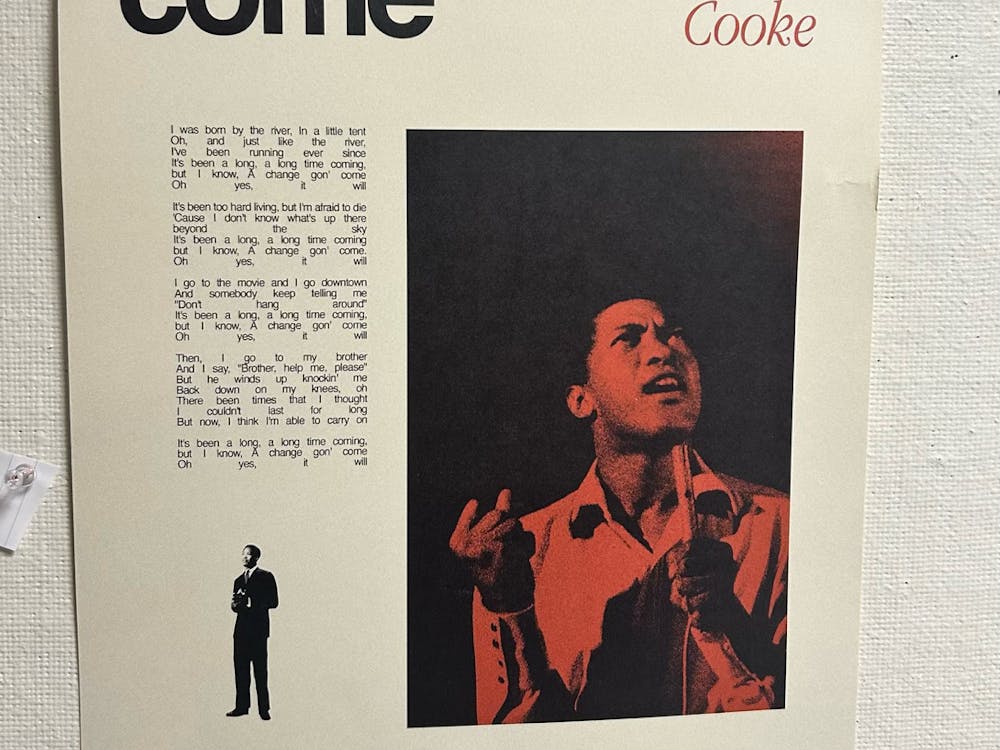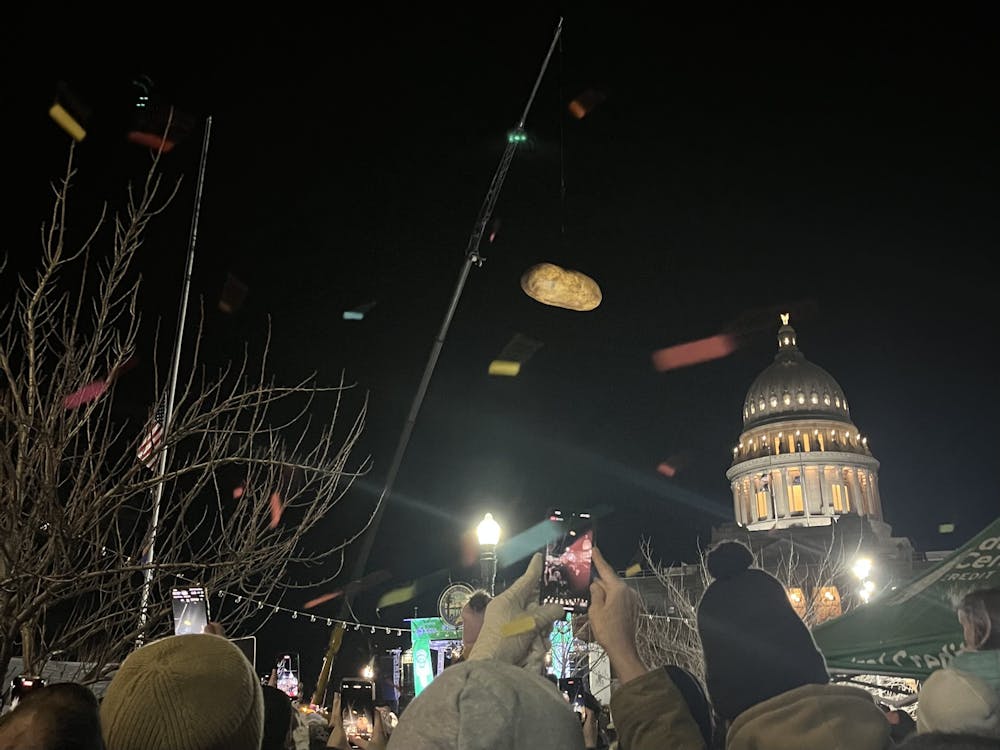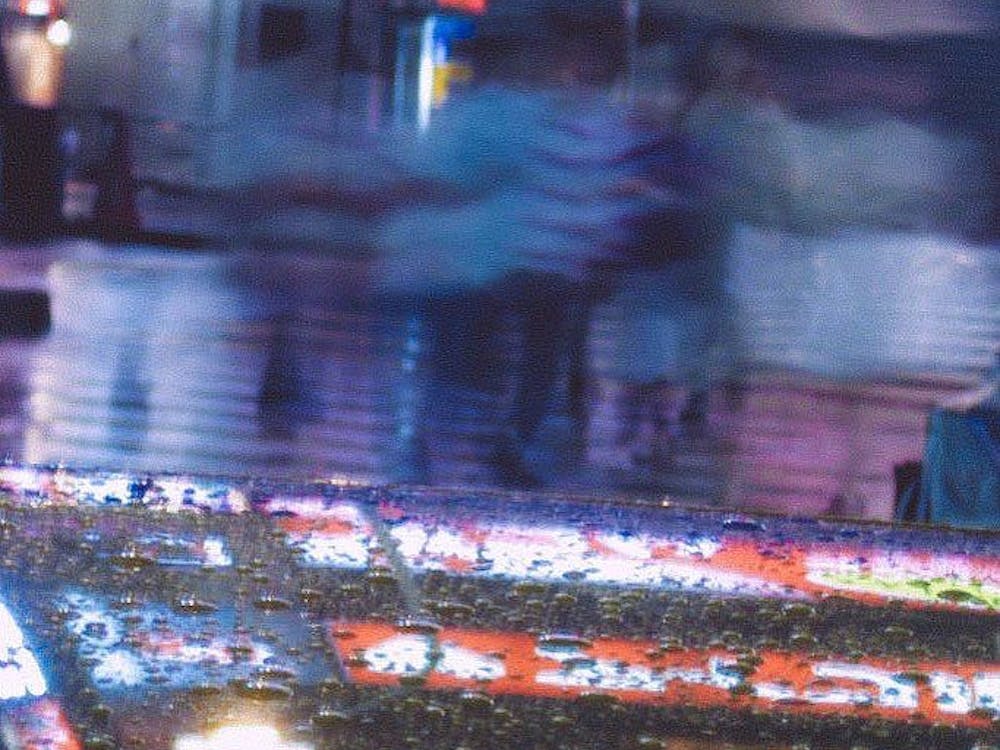Last year, the University unveiled a new initiative that would require two-thirds of all campuses’ electricity nationwide to come from solar power. This was the next step in the University’s 2010 pledge to reduce its carbon emissions by 51 percent by 2025.
However, some students feel as though the University and those who attend it are not doing enough to help the environment. Homewood Campus alone has many student-run clubs and organizations that advocate for greener, more sustainable practices with a wide variety of methods and goals.
Students for Environmental Action
Outside the Fresh Food Cafe, Homewood’s main dining hall, is a small pollination garden that doubles as a “monarch waystation.” The garden’s milkweed and high-nectar flowers were selected in order to make the location an appealing pitstop for migrating monarch butterflies, as well as a great resource for local pollinators.
This garden is one of Students for Environmental Action’s (SEA’s) many on-campus initiatives to make the Charles Village community more environmentally friendly. Projects range from sustainable fashion shows and clothing swaps to cleaning up trash and handing out metal straws.
According to sophomore and SEA Treasurer Carina Cain, this variety in initiatives is one of the club’s core traits.
“We pick and choose what we want to accomplish over the year and every member has a voice in that, and therefore you can choose what topics you want to focus on,” she said in an interview with The News-Letter.
For example, juniors Kenny Vitty and Omar Azmeh, who are SEA’s public relations chair and secretary respectively, use their enthusiasm for sustainable fashion to run Planet Runway, an annual student-run fashion showcase.
As put by Vitty, the event proves to students that it is possible to be both stylish and environmentally conscious. To do this, Planet Runway highlights a wide variety of sustainable options, from local vendors to thrifted finds and fabrics.
“The only requirement is that the clothing has to be sustainable,” he told The News-Letter. “It’s a fun way to be aware about the environment.”
Azmeh seconded Vitty’s stance, saying that Planet Runway was just one of SEA’s many initiatives to keep students on campus aware of their environmental impact.
“Being environmentally friendly can come in different forms,” he said. “It really takes small actions from everyone.”
This year’s Planet Runway was held on March 7 in Levering Hall.
Junior and SEA President Keelin Reilly told The News-Letter that he believed in SEA’s mission to promote eco-friendliness on a broad, local level. To him, even smaller changes can ripple out.
“None of the things we do are directly focused on climate change in particular, but I think that, for instance with Planet Runway and addressing the issue of fast fashion, that has big implications for climate change,” he said.
Junior and SEA Social Chair Chloe Warren says that one of SEA’s main goals is to extend an olive branch to all students on campus, rather than focusing on too much environmental guilt. In doing this, SEA hopes to push students towards environmental action and self-reflection.
“Most of the other environmental clubs are so specific against one targeted issue, where we’re more about advocacy and education for the students without scaring them off,” she told The News-Letter. “There’s the fear today of not knowing what’s going on, so most people pretend they know how to recycle correctly... but I think one of the most important things is the humility to be like, ‘Okay, maybe this isn’t how I’m supposed to recycle. Maybe I should just look it up on Google to figure it out.’”
Refuel Our Future
Every week, Refuel Our Future goes to the front steps of Gilman Hall for Fossil Free Fridays. With posters and banners in hand, the members speak out against the University’s ties to the fossil fuel industry, demanding divestment.
Three years ago, the University divested fully from thermal coal after six years of protests from Refuel and a recommendation by the Public Interest Investment Advisory Committee. However, Refuel does not see this as enough and insists that the University should end all fossil fuel investments.
Sophomore and Refuel Co-Organizer Elly Ren said that she was originally drawn to Refuel because it reflected her beliefs on climate change.
“It is an organization that treats climate change as a crisis and is rooted in a vision of climate justice and centers black, brown, indigenous and poor folks, recognizing capitalism and colonialism as the primary forces fueling the climate crisis,” she said in an interview with The News-Letter.
Freshman Refuel member Lais Santoro believes that since fossil fuels are a major cause of climate change, protesting the University’s investments is clearly linked to fighting the climate crisis.
However, Santoro sees Refuel’s actions as more than just an effort to make the University more environmentally friendly. To her, Hopkins divestment could encourage other colleges to follow suit.
“Hopkins is a big name. It’s influential, so if we divest, that’s pretty big,” she said.
Although the organization has not yet convinced the University to divest, the members remain committed.
According to Ren, Fossil Fuels Fridays will continue until the University announces a full divestment from all fossil fuels.
“For us, it's not really about success, but about consistency. We get to meet different people who stop by, visibly display our persistence, and socialize and strengthen our relationships with each other. Our protests are also an act of solidarity with the other youths protesting climate inaction on Fridays,” she said.
Santoro said that she thinks progress will be made by the time she graduates.
“I think we’re starting to build up some momentum,” she said.
She highly encouraged other students who share the club’s concerns to join her at Fossil Fuel Friday protests.
Compassion, Awareness, and Responsible Eating
Although you don’t have to be a vegan or vegetarian to join Compassion, Awareness, and Responsible Eating (CARE), they certainly encourage it.
Sophomore CARE member Izzy Geada said that she loves how CARE gives her the opportunity to show others how a plant-based diet can be both eco-friendly and obtainable.
“I really like the outreach that we do to try to show that eating a vegetarian or vegan diet doesn’t have to be inaccessible and it can be done by anyone,” she told The News-Letter. “However, the club is very supportive of anyone who wants to join. You do not need to eat a vegan or vegetarian diet. We just want to teach and educate and eat some yummy food.”
The group was founded in order to educate students about the environmental impact of their diets and the harms behind factory farming. To do this, they hold a variety of on-campus events, like plant-based potlucks, to teach students how to make their plates more eco-friendly.
Junior and CARE Co-President Lana Weidgenant told The News-Letter in an email that the ties between fighting climate change and selecting a sustainable diet are clear.
“One of the most impactful environmental actions someone can take to lower their carbon footprint is moving towards a plant-based diet, and advocacy against the massive climate impacts of the industrialized animal agriculture industry goes hand in hand with advocacy against the unfair climate impacts of fossil fuel corporations,” she wrote.
But the club does not limit itself to environmental action. Weidgenant said that she was initially drawn to CARE because of the group’s dual focus on the environment and animal rights.
“I love how CARE... includes discussion of issues including cosmetics animal testing and the suffering of animals to produce items such as leather in fashion, which are topic areas that do not have as many outlets for discussion on campus,” she wrote.
Geada said she wanted to join a group that shared her values.
“I am really passionate about the environment, but I am also really passionate about animals, and I feel like this club really conjoins the two and puts both of my passions into one club,” she said.
Sustainable Hopkins Innovation Projects
At the beginning of each school year, Sustainable Hopkins Innovation Projects (SHIP) decides what their next eco-friendly venture will be. This year, the group is working to create pop-up thrift stores and clothing swaps in an initiative called Blue Jay Threads.
Sophomore and SHIP Project Leader Krittika Negandhi told The News-Letter that the hands-on project approach is extremely motivating.
“What I liked about SHIP is that it’s very project-based, so rather than just doing activism or spreading awareness we do tangible projects... [that] pull from a bunch of subject matters,” she said.
Junior and SHIP External Partnerships and Marketing Chair Cara Valencia agreed.
“I feel like we really get to see our direct impact based on all the projects we do,” she said in an interview with The News-Letter.
The first Blue Jay Threads pop-up was held last October and brought in over 400 pieces of clothing to swap and sell.
The project was started after SHIP members saw how much clothing was being thrown out or left behind each May during move-out.
Junior and SHIP Project Leader Valeria Hesse said that the realization made it clear that students needed an opportunity to pass on their clothes in a sustainable way.
“It demonstrated that people really do have clothing to donate all the time, and many times that just ends up in the trash,” she told The News-Letter.
SHIP plans to hold more pop-up events like this in the future, which they hope to eventually turn into a real on-campus thrift store.
Other past SHIP ventures have included researching improvements for campus infrastructure, improving waste disposal and creating a “Green Guide” to help freshmen lead a sustainable life on campus.
SHIP members also founded the Sustainability Coalition, an alliance of on-campus environment- and sustainability-based clubs. The Coalition aims to promote collaboration between the clubs in order to make the University more sustainable.
Hesse said that she was drawn to SHIP because it values the individual input of its members.
“When I entered as a freshman, what drew me to it was that I saw that the members were all very committed and it was a smaller group with a team where everyone had a say,” she said.
Although SHIP is proud of their efforts, they still see a lot of possibilities for further ventures.
As put by Negandhi, although the University is moving in the right direction, there is still work to be done.
“I think that we’ve made some efforts in the past couple years, but I think there’s definitely always room for improvement,” she said.
Editor’s Note: Lais Santoro is a staff writer for The News-Letter. She was not involved in the reporting, writing or editing of this piece.




